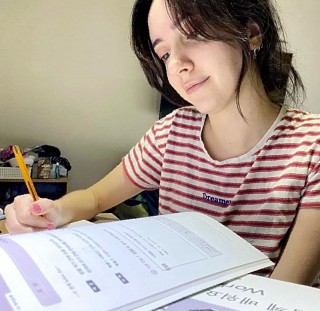Loading
Search
▼ International Students Giving Up On Japan Due To COVID-19 Restrictions
- Category:Other
The number of international students coming to Japan to study has plummeted amid the COVID-19 pandemic. Some international students who had hoped to enroll in courses in Japan have even changed their study destinations because of Japan’s strict entry restrictions.
Japan is the only country in the Group of Seven that has restrictions banning the entry of most new foreign students as part of coronavirus measures.
Although there is a need to mitigate the spread of infections, concerns have been expressed about the possible impact such measures are having on Japan’s internationalization and ability to recruit talented foreign personnel.
A survey by the Immigration Services Agency of Japan found that the number of new international students entering Japan from January to June this year was down about 90% from the pre-pandemic period in the first half of 2019.
According to the data, 7,078 new international students entered Japan in the first half of 2021, 11.5% of the number who arrived in the same period in 2019 when 61,520 students entered the country. The number of such entries in 2020 also sharply decreased to 49,748, compared to 121,637 in 2019.
“I still want to study in Japan. But I had no idea when I’d be able to enter the country, and I couldn’t keep wasting precious time just waiting,” said 22-year-old Joana Gubau from Spain, who graduated from a university in Spain last autumn and opted to study in South Korea instead of Japan because of the entry restrictions. She has been studying Korean at a university in South Korea since June.
Gubau developed an interest in Japanese culture and fashion from her father, a Japanophile who introduced her to anime and taught her Japanese.
Although her Japanese language skills have improved to the point where she can participate in daily conversation, she ended up changing her plans. Gubau said she feels that “foreign students are being rejected [by Japan].”
In 2008, the government announced a plan to more than double the number of foreign students to more than 300,000 by 2020. By May 2019, the figure had hit a record high, exceeding 310,000.
In May this year, new government-sponsored students were allowed to enter the country again, but restrictions on privately-funded students, who account for 95% of the total, have continued.
The Examination for Japanese University Admission for International Students is held in June and November every year to test the Japanese language ability and basic academic skills of international students.
The number of foreign students who took the test reached a record high of about 60,000 in 2019, but the June test was canceled in the following year due to the pandemic, which pushed the number of examinees down to the 20,000 range. The number of students who took the test in June this year was in the 10,000 range.
The Japan Association for International Student Education, an organization made up of universities and other organizations, issued an urgent appeal on Sept. 9, calling for efforts to be made so that students can enter Japan.
The association cited such concerns as the possibility of overseas universities reconsidering their relationships with Japanese universities due to the lack of exchange programs, and the closure of overseas intermediary centers.
Osaka University Prof. Sachihiko Kondo, who heads the association, is concerned that “Japan is losing its credibility among international students as a study destination, which could impact the country’s ability to attract talented individuals.”
■ Universities frustrated
At Ritsumeikan Asia Pacific University in Oita Prefecture, where foreigners from about 90 countries make up half of the students, about 600 international students are currently taking online classes while waiting to enter the country.
Only six international students were able to enter Japan to study at the university this academic year.
Nepali Alexa Maharjan, 20, who is studying at the university’s College of International Management, has been taking online classes in Nepal since enrolling in April last year.
“I can’t wait to meet friends on campus and walk around,” said Maharjan. However, she is considering giving up her initial wish to work for a Japanese company as she still has no experience of living in Japan.
Kaoru Natsuda, 50, the director of the university’s admissions department, said, “Japan’s internationalization is going backward.”
Akita International University has also stopped exchange programs with 200 partner universities in 50 countries and regions since last April.
On the other hand, the number of Japanese students studying abroad has been increasing since summer. G7 nations other than Japan have been accepting foreign students by taking virus containment measures.
“The United States encourages the exchange of students, researchers, scholars, and educators with our closest partners and allies, especially Japan,” said U.S. Charge d’Affaires ad Interim to Japan Raymond Greene.
“We look forward to the resumption of opportunities for American students to travel to Japan for study.”
In June, the Education, Culture, Sports, Science and Technology Ministry asked universities to check the infection situation and medical system in overseas study destination countries before resuming one-year exchange programs for Japanese students.
Students who want to study abroad have also been offered vaccinations on a priority basis.
A 19-year-old student who joined Kyoto University in April took a leave of absence from school and went to the United States in late August to study at the University of Pennsylvania.
At Kyoto University, more than half of the classes were online, but at the University of Pennsylvania, where vaccinations are mandatory in principle, all classes are conducted face-to-face.
Stimulated by the lively discussions among professors and students, she said she has “the campus life I envisioned, both in classes and extracurricular activities.”
- September 22, 2021
- Comment (0)
- Trackback(0)


